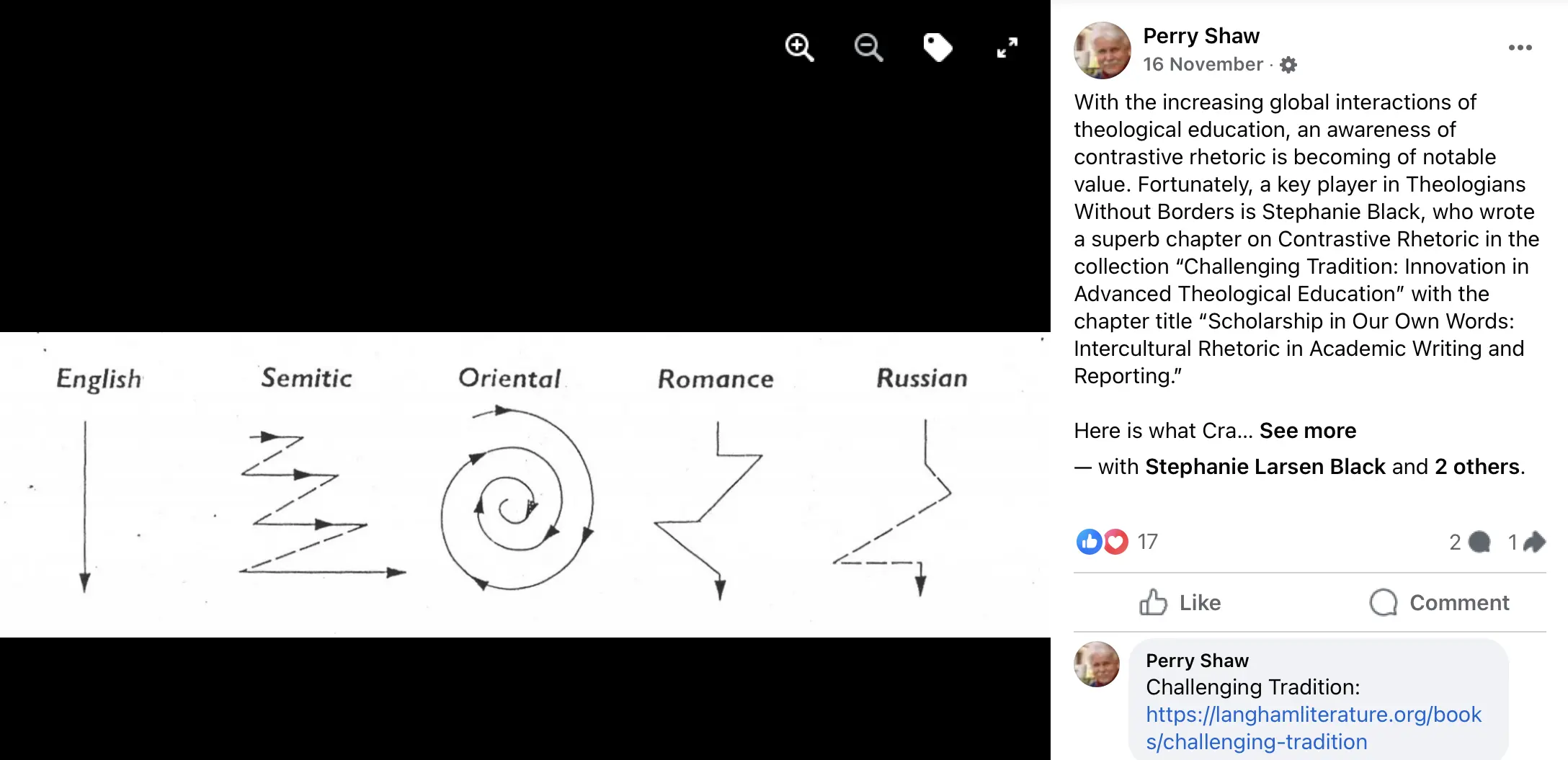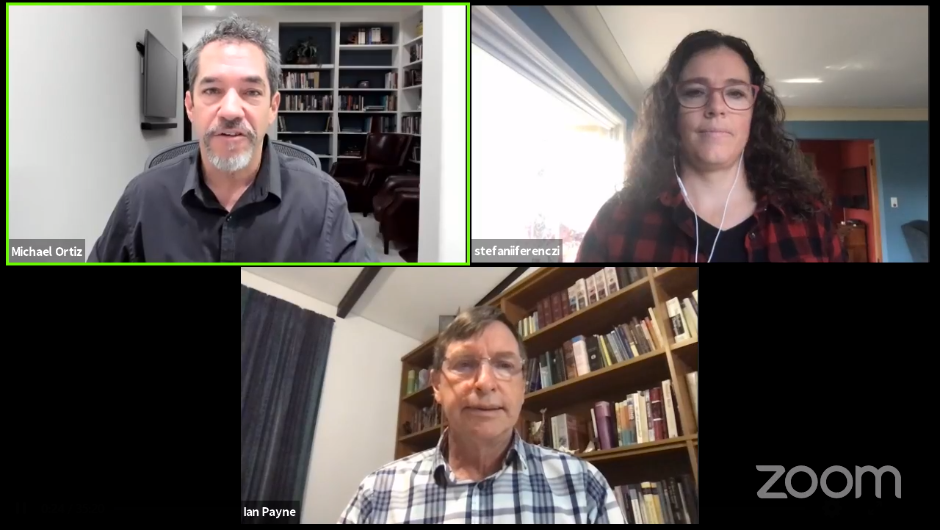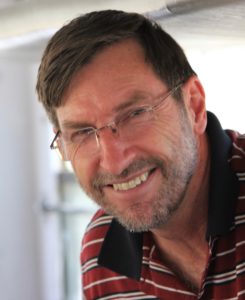PANDEMIC EASING; INCREASING OPPORTUNITIES:
With restrictions on international travel reducing, many theological institutions are planning new initiatives and increasing numbers of teaching-visit opportunities. The pandemic has exacerbated global imbalances, so the synergy TWB can bring is all the more needed.
Check out the opportunities below for 2023/2024.

A South Indian seminary wants TWB approved volunteer online tutors for twenty subjects. They are ATA accredited and are offering MDiv, MTh in four disciplines (OT, NT, Missions, Pastoral Theology), DMin and PhD in Intercultural Studies, and PhD in New Testament. If you are willing to be considered for one or several of the listed subjects, express your interest using the form below (quote code SAOH).
Express your interest
NEWS
MEDIA
Perry Shaw Commends Stephanie’s Work

Perry quotes what Craig Ott writes about contrastive rhetoric (referencing Stephanie):
“Much of the research on contrastive rhetoric has focused on the writing styles of native and non-native speakers of the target language. Initially such differences were thought to be related to linguistic differences between the first and second languages. Now differences are more commonly attributed to cultural convention. Students are taught what is proper writing style; what is considered aesthetic, persuasive, and socially appropriate (e.g., assertive versus restrained). For example, here is how a group of African students described their rhetorical style: “Whereas the Western style of writing is polemical, the African system is more of a negotiation with the audience so as to make them ‘accept’ our work.” Another group said, “African communication is mostly implicit. When a speaker is too explicit, he is perceived by the audience as trying to undermine their intelligence” (Black 2018).” (Teaching and Learning Across Cultures p85)
Watch Ian Payne in conversation with Michael Ortiz of ICETE, talking about Theologians Without Borders.
Good advice from Nigeria: Don’t be afraid to start small.
Faculty freedom to go online:
Dr J. Manoch and Dr Steve Taylor share how they responded to Covid-19 by expanding their online program in simple ways…
Hear Ian Payne being interviewed on Radio Rhema by Andrew Urquhart about Theologians Without Borders:
EVENTS
ETS Annual Meeting, San Antonio, TX, in November 2023. Executive Director, Ian Payne, and Associate Director, Stephanie Black will be there. Look out for us at our display booth #710.


